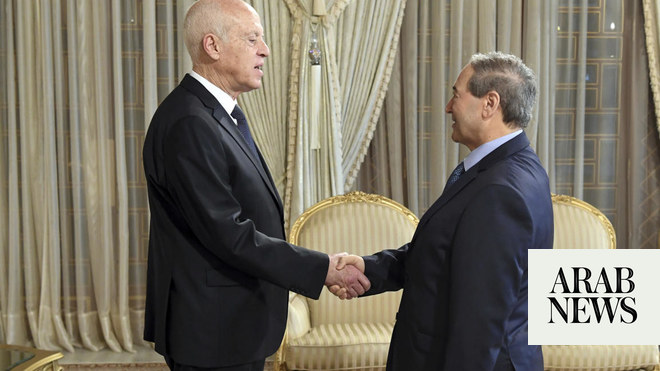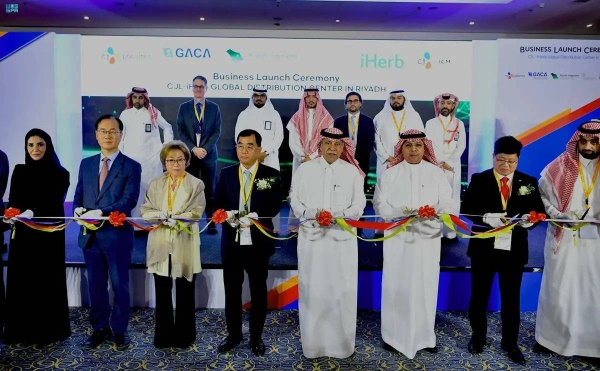
Significant encounters between Saudi and Turkish officials in the past week suggest an easing of tensions in political, economic and security relations.
Foreign ministers Prince Faisal bin Farhan and Mevlüt Çavuşoğlu met at the Organization of Islamic Cooperation meeting in the Pakistani capital, Islamabad. Çavuşoğlu said they had constructive discussions and agreed to further develop ties, as the two countries work to repair their strained regional relations. He described the meeting as “very beneficial and goal-oriented,” which would be helpful in thawing the icy relations between the two regional heavyweights. The Saudi Foreign Ministry said they had discussed “bilateral relations to serve the interests of the two countries, as well as regional and international developments.”
Since the end of 2020, Ankara has been mounting a regional charm offensive to mend ties with Riyadh. In May 2021, Çavuşoğlu visited Saudi Arabia for talks, his first visit to the Kingdom after years of tense relations. Also that month, Turkish President Recep Tayyip Erdoğan spoke by phone with King Salman, and the two leaders have conveyed positive messages to each other on various occasions. Erdoğan recently stated that his country would continue a “positive dialogue with Saudi Arabia” and revealed his intention to visit the Kingdom.
These remarks about normalization between Ankara and Riyadh come as Turkey is engaged in an effort to mend its frayed ties through intensified diplomacy with several regional countries, including Egypt, the UAE, Bahrain and Israel, after years of tensions. Turkey, which has long-standing economic difficulties and is heading for critical elections next year, hopes to maximize cooperation with Gulf countries, notably Saudi Arabia. In tandem with political incentives, there are other areas that could ease the Turkish-Saudi rapprochement.
In this context, there were two important developments this week. First, the Turkish President of Religious Affairs, Ali Erbaş, visited Jeddah at the invitation of the Saudi Minister of Hajj and Umrah, Tawfiq Al-Rabiah. Hajj and Umrah were limited for two years because of the pandemic, and Turkey was among the countries from which entry was denied. Turkey sends high numbers of pilgrims every year, so the meeting was important to discuss progress.
While the balances are rapidly changing and the crises accelerating, now or later, Ankara and Riyadh should board the train of normalization for the sake of their national interests.
Sinem Cengiz
The other development was the attendance of Saudi Chief of General Staff Fayyad bin Hamed Al-Ruwaili at a maritime defense exhibition in Doha, where he visited the Turkish pavilion exhibiting its defense industry capabilities. Turkish armed drones have been a game-changer in conflicts in Syria, Libya and Nagorno-Karabakh. Defense industry cooperation between Ankara and Riyadh offers great opportunities for both. While Turkey seeks new and lucrative export destinations for its defense industry, Saudi Arabia aims to strengthen its defense capabilities through sources other than Western ones. Within the framework of Vision 2030, Riyadh aims to develop an indigenous defense industry, so collaboration in the defense industry is in both parties’ best interests and appears as a concrete area to establish functional ties between Saudi Arabia and Turkey.
The two countries already have a history of defense and military cooperation. Initiatives in 2013 led to agreement between Turkish and Saudi defense companies in 2016.
Turkey and Saudi Arabia also share concerns as Europe deals with its worst security crisis of recent times, which could have repercussions far beyond its eastern borders. As the tensions turn military, Turkey and the Gulf states, in particular Saudi Arabia, seek to ride the storm while also increasing their defense and military capabilities for their long-term national goals. The current geopolitical context is likely to push both Turkey and Saudi Arabia to overcome their policy differences and play a constructive role in addressing common concerns.
Thus, the recent contacts between Turkish and Saudi officials are critically important. They provided anopportunities for both countries to once more highlight their concerns with the current developments in the region, and to explore other areas of cooperation. While the balances are rapidly changing and the crises accelerating, now or later, Ankara and Riyadh should board the train of normalization for the sake of their national interests. In doing so, their realistic and pragmatic approach will not only repair their relations, but also have significant regional implications.
Sinem Cengiz is a Turkish political analyst who specializes in Turkey’s relations with the Middle East. Twitter: @SinemCngz
Disclaimer: Views expressed by writers in this section are their own and do not necessarily reflect Arab News" point of view








